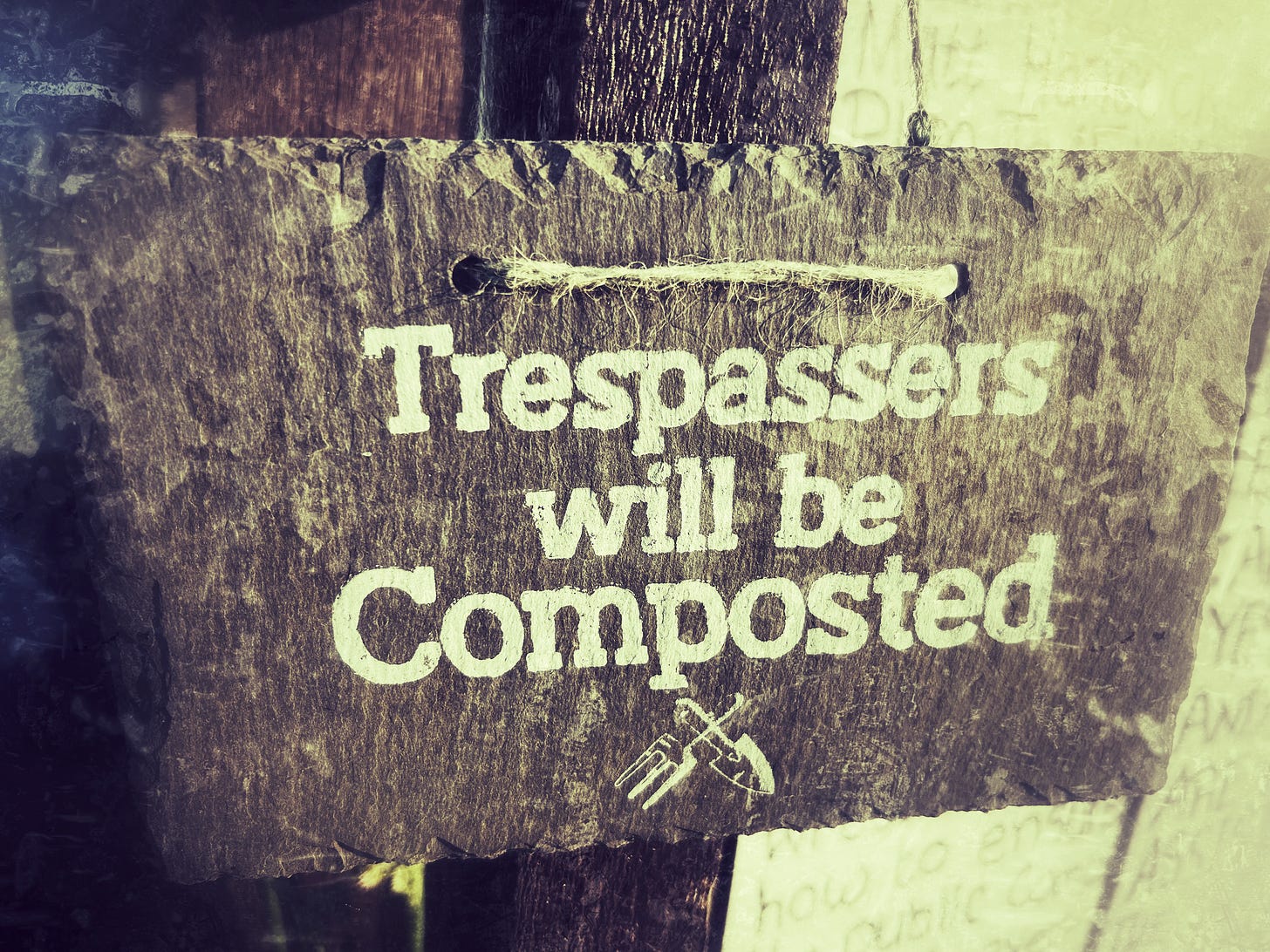Resource kit to challenge “ghost courts” in England and Wales
Use this text to put the judge on notice that they are running void proceedings
This edition of the newsletter is a practical resource kit for anyone challenging prosecutions originating from so-called “ghost courts” — names used on criminal summonses which do not correspond to any court constituted in law under the Courts Act 2003.
I am releasing three of the core documents from the “mini bundle” I submitted before proceedings began in my own case. These are provided for others to repurpose, adapt, or refine, based on your own needs.
⚠️ Disclaimer: I am not offering legal advice. This is a documentation of what I personally did. The quotes are précis, not full citations. You recycle these materials at your own risk.
If a court doesn’t legally exist, then it cannot issue a valid summons, host a lawful trial, or produce a legitimate conviction. That simple.
No court in law = No summons in law = No trial in law = No conviction in law.
Why This Matters
This is not a niche procedural issue. If we concede that administrative fiction can substitute for lawful constitution, then every injustice becomes procedurally unchallengeable. Jurisdiction is not a technicality. It is the bedrock of law.
A judge who cannot grasp that a court must exist before it can act is not fit to serve. If the judicial branch misrepresents its own existence, we are in a state of emergency for the rule of law.
Even if the Supreme Court were to wave this through on a technicality, it would only intensify the scandal: legal certainty is non-negotiable, especially in matters of criminal liability.
The Documents
Here are the three main texts from my bundle:
Cover Note to the Judge – formally raising the jurisdictional objection.
One-Page Legal Summary – outlining the nullity argument with case law.
Final Statement to the Court – declining participation in void proceedings.
(Additional exhibits — e.g. FOI correspondence showing the “court” is merely a Local Justice Area — are available, but withheld here for privacy reasons. Ask if needed.)
1. Cover Note to the Judge
To the Clerk and Justices of the Court, [INSERT CONVENING COURT NAME]
RE: Jurisdictional Objection — [INSERT CASE NUMBER]I respectfully submit this bundle as a lawful objection to the court’s jurisdiction, pursuant to Criminal Procedure Rules 4.7, 7.2, and 7.3 [check these yourself!], and the principles established in Catlin, Rixon, and Grace [don’t just assume I have this right!].
The attached materials demonstrate that the summons in this matter is void ab initio, having been issued by a tribunal not constituted in law. As a result, no lawful jurisdiction exists, and this court has no authority to proceed.
This objection is made in good faith and is not withdrawn. I do not consent to participate in proceedings that lack lawful foundation.
Yours faithfully,
[YOUR NAME]Enclosures:
Statement of Jurisdictional Nullity
Front page of summons
HMCTS Court Finder results
FOI response confirming issuer is a Local Justice Area
CrimPR breaches summary
Timeline of procedural history
Final statement of non-participation
2. One-Page Legal Summary: Jurisdictional Nullity
TO: THE JUSTICES AND CLERK
RE: Jurisdictional Nullity – Unlawful Summons from Non-Existent Court
1. Issuing Court Not Constituted in Law
The summons bears the name “[GHOST COURT NAME]”, which HMCTS confirms is merely a Local Justice Area (LJA), not a statutory court. This name is absent from all court lists under the Courts Act 2003.
“The foundation of jurisdiction is the existence of a court constituted according to law.”
— R v Inner London Crown Court, ex p Rixon [1984] QB 151
2. Administrative Practice Cannot Cure Nullity
Internal HMCTS customs or naming conventions cannot override statutory requirements.
“Administrative habit does not create legal validity.”
— DPP v Richards [1955] 2 QB 292
“Use of an incorrect court or procedure is not a mere irregularity. It renders the proceedings a nullity.”
— R (Sutherland) v Croydon Magistrates’ Court [2002] EWHC 2308
3. No Valid Substitution Possible
If this forum now claims to act under the authority of [CONVENING COURT NAME], it must demonstrate that the original summons was lawfully issued by that body. It was not.
4. Entire Proceeding Is a Nullity
A defective origin cannot be cured by downstream proceedings. Magistrates’ Courts cannot breathe life into void claims.
5. Challenge Raised, But Ignored
This jurisdictional objection was raised at [INSERT DATE], and the court declined to engage. That failure breaches the Article 6 ECHR requirement for legal certainty (Hornsby v Greece, 1997).
6. Request for Ruling
I respectfully request a jurisdictional ruling as a preliminary matter, prior to any further steps being taken.
3. Final Statement to the Court
Lawful Position of the Defendant
I do not consent to participate in these proceedings.
I do not concede jurisdiction.
I consider any judgment or penalty issued under void conditions to be legally null and administratively abusive.
This statement, along with the documents herein, will form part of the evidentiary record in forthcoming High Court review proceedings.
The misrepresentation of judicial authority on criminal summonses may be one of the greatest scandals in British legal history. The state has so far refused to provide any statutory explanation for this naming convention. There is no visible legal basis for allowing administrative areas to operate as pseudo-courts.
Knowingly running a void prosecution is among the gravest abuses of judicial power. Any justice who proceeds in full knowledge of the jurisdictional defect may face misconduct proceedings or even criminal liability for misfeasance in public office.
If we let this slide, then no other injustice can be meaningfully contested — because the rulebook is already in the shredder.



Blunt and direqt.
Your knowledge is the bomb, Martin. We have to take it onboard, use it wisely, share it freely, and become the power we already are.